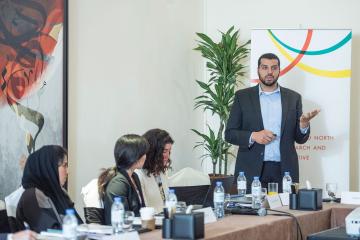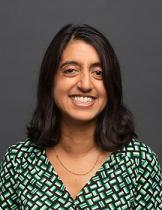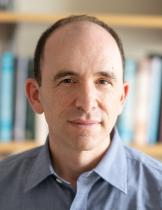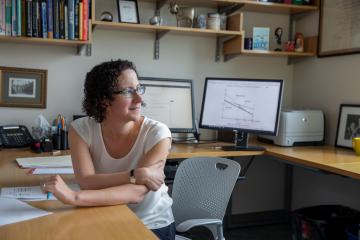
Affiliate Spotlight: Seema Jayachandran and Benjamin Olken on promoting inclusivity in development economics
Seema Jayachandran is a professor of economics at Northwestern University and chair of J-PAL's Gender sector. Benjamin Olken is a professor of economics at the Massachusetts Institute of Technology, director of J-PAL, scientific director of J-PAL Southeast Asia, and co-chair of J-PAL’s Political Economy & Governance sector. They are the new co-directors of the Development Economics Program at the National Bureau of Economic Research (NBER).
We spoke with Ben and Seema in mid-January to learn more about their new roles at NBER.
NBER’s Development Economics Program, formed in 2012, is the youngest among NBER programs. What do you think have been some of the program’s key successes over these past seven years?
Seema: I think there were two things. First of all, there was already a lot of pent-up excitement in the development economics community leading up to the program’s launch, and development economists have been fairly active in the program's activities from the start.
The second is that Duncan Thomas was an excellent choice to be our predecessor in this role; he put us on a good path. He had a lot of energy, was very inclusive, and had innovative ideas. That’s a big part of why the program is successful, and it is a model for us to try to follow and build on.
Ben: Absolutely. The third thing I would add is that one of the strengths of NBER is its working paper series, which has a tremendous reach. It’s been terrific to have this as a platform for a lot of cutting-edge research in development economics.
More broadly, are there any current trends or new methodologies in the development economics field that you find particularly exciting?
Ben: Development economics is a broad field that encompasses a wide range of issues and topics. One exciting trend I’ve seen recently is the increasing attention to the role of the public sector in development. In particular, there has been a recognition that governments in developing countries have an increasing capacity to run all kinds of programs. But how can this work most effectively? This includes looking at the expenditure side, but also understanding how governments in low-income settings can raise resources they need to be able to fund those programs on the tax side.
A lot of the things that we know from public finance in developed countries don’t necessarily translate directly to a developing country context, and there are many questions that are not yet answered there. So there is a lot of excitement at the moment about thinking through these issues.
A second topic area that I think has gotten a lot of attention recently is understanding private sector firms and firm behavior. Increasingly, people understand that much of economic growth comes from firms. Understanding the particular challenges that firms face in developing countries’ contexts is an area in which there has been a tremendous amount of attention recently—reflected in the recent launch of J-PAL’s Firms sector as well—and I think that’s something that we’re only going to see more of in the future.
The third trend we see is in cross-cutting approaches. Twenty years ago, development economics was a very theoretically-oriented field. Then it went through a period where it was a very empirically-oriented. I think what we’re seeing now is that many new papers have a nice mix of both. There is careful attention to theory and also careful empirical work, and they are blending in all kinds of exciting ways.
Seema: Let me start with a meta-point: I don’t aim to have a strong imprint on NBER of steering research in one particular direction. In many ways, I am a consumer of what people are doing. But personally, I am excited about the work that’s been done in gender and development. There has always been work on this, but I think it’s an exciting area right now.
I’d also love to see more work on climate change and development. It’s a global problem and there has been some existing work on that already, including from Ben and me, and I’d love to see even more.
Several of the exciting papers that I’ve seen, especially among young people in recent years, have been at the intersection of development and other fields: development and trade, or development and IO, for example. NBER is broader than just development, which lends itself to this type of cross-cutting analysis.
For example, at an early NBER Summer Institute, Duncan Thomas organized a joint session between the development group and the labor studies group in which the papers presented were all about labor markets in developing countries. The people in the room were both development economists and labor economists, which created nice cross-pollination that NBER is well-positioned to facilitate.
Ben: Let me also echo what Seema said before, in that I think we both take the view that our roles as program directors are to facilitate the interactions of people in the field in a very broad way. We want to be inclusive of all different kinds of work in development economics. These are particular trends that we see as new or exciting research areas, or areas in which research is on the upswing, but we are open to all types of research in development economics and want to foster as an inclusive a group as possible.
From the functional perspective—and for those who don't already know— what does the program director role entail? Do you have a strategic vision for this role?
Ben: NBER sponsors several conferences per year in development economics. Our main role is to help organize those conferences. We nominate selection committees that selects the papers to be presented and organizes the conferences.
We get a tremendous number of submissions, but the format of an NBER conference is to have a very small number of papers that can be presented and worked through in depth. That selection process is quite challenging.
Seema: One exciting thing about our program is that there’s involvement both from very senior and very junior people. So already we don’t have to do much for people to get to mingle and interact with and leverage that cross-generational network. NBER is kind of a virtual set of colleagues. It’s a win-win for both groups. One thing we might think about is how to enhance that further.
Ben: Seema and I would also like to explore opportunities for some scholars from developing countries to attend NBER conferences from time to time. I’ve heard from a number of scholars in developing countries who have attended an NBER conference that this type of opportunity to gain exposure to new and different kinds of research has really been useful. Obviously there are travel constraints and challenges, and of course there is a financial constraint, but this is one exciting idea we would like to look into further to see how we can try to ease those constraints.
Does this position align with your respective research interests or your sector work at J-PAL? In particular, Seema, given your role as chair of the Gender sector at J-PAL, do you see this as an opportunity to increase diversity and engage more female researchers in the discipline?
Seema: It is important to me and Ben that our meetings are diverse: in gender, in race, in methodology, in the counties being studied. That is not to say this is not the case already, but we certainly plan to be attentive to who is invited to the meetings, and who is presenting at the meetings. Gender is just one aspect of diversity; there are other areas in which the economics field can improve as well.
Ben: Let me add that despite the fact that Seema and I come as researchers with particular research interests, our view of this role is that the development economics group should be broad and inclusive. We are going to try to make sure we include a wide variety of fields and topics, and that will apply to how we choose the people who organize programs with us. We will work to make sure we have a variety of people with different fields, and preferences, and interests. It’s important to us that our conferences and program be diverse in a wide variety of ways.
Seema: One change that predates us is that the NBER Development Program has tried to foster a constructive climate in the conference room. Some of this is operational—for example, requesting that audience members hold their questions during the first ten minutes of a presentation—but more broadly, it’s a cognizance that the NBER audience at program events can be intimidating. All these big names in the room can be intimidating to a junior economist. So it’s important to try to minimize aggressive questioning to enable presenters to get their point across.
Part of encouraging diversity is making sure that some of the extreme aggressiveness that the economics field has been cited for lately doesn’t seep into our development meetings at NBER.
Ben: We want everyone to feel like it’s a place where they can present their research and get constructive feedback.
The most recent Development Economics Program meeting, which took place in December, featured many papers by young economists, and roughly half of the program affiliates received PhDs within the last ten years. Do you have any advice for those who are early in their research careers? What is something you wish you had known when you were first starting out?
Ben: I think one thing that I find very important, which I did both as a junior researcher and still do today, is taking the time to actually immerse yourself in the environments that you are studying. That means going to the countries that you’re studying and making sure that you understand the environment firsthand. This doesn’t necessarily apply to all types of research and everyone studying development, but for many researchers it can be quite helpful, for a few reasons.
First, there are intuitions through which we approach research. Those intuitions are formed in a variety of ways, but particularly for those of us who are not originally from the countries where we work, these intuitions may not match reality on the ground. There is no substitute for seeing for yourself and making sure that your intuitions and your understanding of the world matches the actual real world.
Second, seeing the world firsthand is helpful for generating new research ideas—what’s important in the world is not necessarily what’s already important in the economics literature. In fact, a good way to find gaps in literature is actually to see what’s out in the world and realize, “hm, there is not actually good research on this—I should try to contribute.”
Seema: A big predictor of success and happiness in this field, I think, is being passionate and energetic about your research.
That passion and energy don’t always have returns immediately, but I think they’re key to who ends up doing well—both by the profession’s metric of success, and also in terms of personal satisfaction. So one piece of advice is to not over-strategize about what topics or methods have career returns at the expense of not working on what you are personally most excited about.
Related Content

Affiliate spotlight: An interview with Amy Finkelstein on how her recent MacArthur Fellow award opens up new possibilities in innovative research
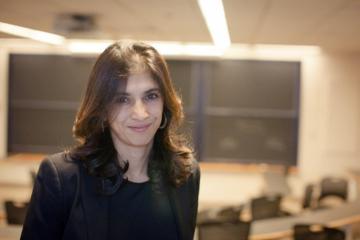
Affiliate spotlight: Rohini Pande on furthering the status of women in economics
